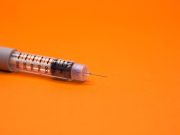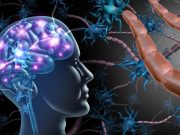Tag: Multiple Sclerosis
Most Patients With MS Have No Risk for Relapse After COVID-19 Vaccination
For patients with high MS activity, small increase in relapse risk seen after booster dose, especially for those not treated
Ofatumumab Effective for MS Across Racial, Ethnic Subgroups
Ofatumumab is more effective than teriflunomide for relapsing multiple sclerosis across subgroups
Parental Smoking Possibly Linked to Increased Risk for MS
In Norwegian population, associations observed between maternal smoking, maternal smoking during pregnancy and MS risk
Mesenchymal Stem Cell-Neural Progenitors Beneficial for MS
More improvement in timed 25-foot walk, six-minute walk test seen among those requiring assistance for ambulation
AAN: Monoclonal Antibodies for MS During Breastfeeding Not Harmful
No association seen for mAb during breastfeeding with infant hospitalization, systemic antibiotic use, developmental delay
Frexalimab Has Favorable Effect on Relapsing Multiple Sclerosis
Generally favorable effect seen in terms of number of new gadolinium-enhancing T1-weighted lesions at week 12
Racial Disparities Identified Among Pregnant Women With MS
White mothers more often employed and privately insured; birthweight lower for babies born to underrepresented women
Five Health Conditions Linked to Subsequent Diagnosis of MS
Depression, sexual dysfunction, constipation, cystitis, UTI of unspecified site associated with MS diagnosis
Higher Neurofilament Light Chain Levels Seen Before MS Disability Worsening
Findings independent of clinical multiple sclerosis relapse
MS-Specific Internet-Based Therapy Program Can Cut Depressive Symptoms
Two versions can significantly reduce depressive symptoms in patients with multiple sclerosis














